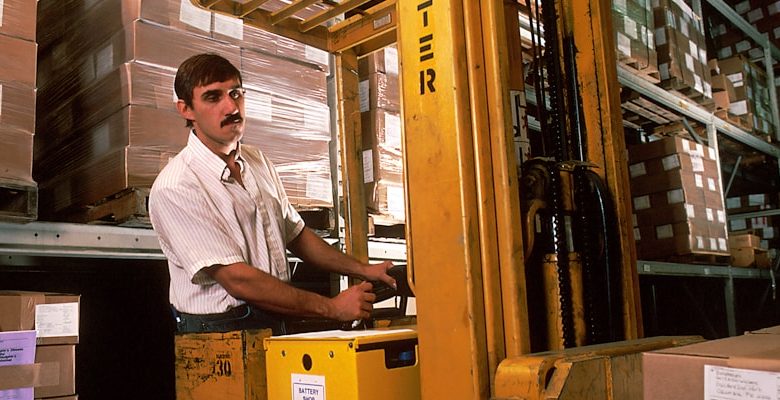The Role of Decentralized Storage Solutions in Web3

- Understanding the concept of decentralization in Web3
- Exploring the benefits of decentralized storage solutions
- Comparing centralized vs decentralized storage in Web3
- The impact of decentralized storage on data privacy
- Challenges and opportunities in adopting decentralized storage
- Future trends in decentralized storage solutions for Web3
Understanding the concept of decentralization in Web3
Decentralization in Web3 refers to the distribution of control and ownership of data and resources across a network of nodes, rather than relying on a central authority. This concept is fundamental to the development of decentralized storage solutions, which aim to provide a more secure and transparent way of storing and accessing data on the internet.
By decentralizing storage, Web3 applications can reduce the risk of data breaches and censorship, as there is no single point of failure that can compromise the entire system. Instead, data is fragmented and distributed across multiple nodes, making it more resilient to attacks and ensuring greater privacy for users.
One of the key principles of decentralization in Web3 is the use of blockchain technology to create a tamper-proof and verifiable record of data transactions. This allows users to have complete control over their data and how it is shared, without the need for intermediaries or third-party service providers.
Overall, understanding the concept of decentralization in Web3 is crucial for realizing the full potential of decentralized storage solutions. By embracing this paradigm shift towards a more democratic and secure internet, we can create a more resilient and trustworthy digital ecosystem for all users.
Exploring the benefits of decentralized storage solutions
Decentralized storage solutions offer a wide range of benefits that can revolutionize the way data is stored and accessed in Web3 environments. By distributing data across a network of nodes instead of relying on centralized servers, decentralized storage solutions provide increased security, reliability, and scalability for users.
One of the key advantages of decentralized storage solutions is their ability to enhance data security. With data spread across multiple nodes, it becomes much more difficult for malicious actors to compromise or manipulate information. This distributed approach also reduces the risk of data loss due to hardware failure or cyber attacks, ensuring that data remains accessible and intact.
Another benefit of decentralized storage solutions is their improved reliability. By removing single points of failure inherent in centralized systems, decentralized storage solutions can ensure continuous access to data even in the face of network disruptions or outages. This enhanced reliability can be particularly important for businesses and organizations that rely on constant access to their data for operations.
Decentralized storage solutions also offer increased scalability compared to traditional storage methods. As data volumes continue to grow exponentially, decentralized storage solutions can easily accommodate this growth by adding more nodes to the network. This scalability ensures that users can store and access large amounts of data without experiencing performance bottlenecks or storage limitations.
Overall, decentralized storage solutions provide a compelling alternative to centralized storage methods, offering improved security, reliability, and scalability for users in Web3 environments. By leveraging the benefits of decentralized storage solutions, organizations can enhance their data management practices and better protect their valuable information.
Comparing centralized vs decentralized storage in Web3
When comparing centralized and decentralized storage solutions in Web3, it’s important to consider the key differences between the two approaches. Centralized storage relies on a single point of control, typically managed by a third-party provider. This means that data is stored on servers owned and operated by a single entity, making it vulnerable to security breaches and data loss. On the other hand, decentralized storage utilizes a network of nodes to distribute and store data across multiple locations. This ensures that data is more secure, as there is no single point of failure.
Centralized storage solutions are often easier to set up and manage, as users can simply sign up for a service and start uploading their data. However, this convenience comes at the cost of privacy and security. With decentralized storage, users have more control over their data and can rest assured that it is not being accessed or tampered with by a centralized authority.
Another important factor to consider when comparing centralized and decentralized storage in Web3 is scalability. Centralized storage solutions may struggle to handle large amounts of data, leading to slow performance and downtime. Decentralized storage, on the other hand, is designed to scale more efficiently as more nodes can be added to the network to handle increased demand.
The impact of decentralized storage on data privacy
The shift towards decentralized storage solutions in Web3 has significant implications for data privacy. By distributing data across a network of nodes rather than storing it in a central location, decentralized storage enhances the security and privacy of user information. This distributed approach reduces the risk of a single point of failure or a data breach, as data is not stored in a vulnerable central repository.
Decentralized storage also allows users to have more control over their data. With traditional centralized storage, users often have to trust third-party providers to safeguard their information. However, with decentralized storage solutions, users can encrypt their data before storing it on the network, ensuring that only they have access to their information. This increased control over data privacy is a key benefit of decentralized storage solutions in Web3.
Furthermore, decentralized storage solutions are designed to be censorship-resistant. In a centralized storage system, governments or other entities may be able to compel a single provider to hand over user data or restrict access to certain information. In a decentralized storage network, data is spread out across multiple nodes, making it much more difficult for any single entity to control or censor access to the data. This added layer of protection is crucial for maintaining data privacy in an increasingly interconnected world.
Overall, the impact of decentralized storage on data privacy is profound. By decentralizing data storage, Web3 is ushering in a new era of enhanced security, control, and censorship resistance for users. As the adoption of decentralized storage solutions continues to grow, the protection of data privacy will become increasingly important in the digital landscape.
Challenges and opportunities in adopting decentralized storage
One of the key challenges in adopting decentralized storage solutions is the initial setup process. Users may find it daunting to navigate the technical requirements and configurations needed to start using these platforms effectively. However, this obstacle also presents an opportunity for education and skill development. By familiarizing themselves with the intricacies of decentralized storage, users can gain valuable knowledge that can be applied to other aspects of their digital lives.
Another challenge is the issue of data security and privacy. With centralized storage solutions, users are often at the mercy of the platform provider when it comes to safeguarding their information. Decentralized storage, on the other hand, offers greater control and transparency in how data is stored and accessed. This shift towards a more secure and private storage environment is a significant opportunity for users to take ownership of their digital footprint.
Scalability is a common concern when it comes to decentralized storage solutions. As more users join these networks, the demand for storage space and bandwidth increases. This can lead to potential bottlenecks and performance issues if not managed properly. However, this challenge also opens up opportunities for innovation in optimizing storage protocols and enhancing network efficiency. By addressing scalability issues head-on, decentralized storage platforms can continue to grow and evolve to meet the needs of a diverse user base.
In conclusion, while there are challenges to overcome in adopting decentralized storage solutions, there are also numerous opportunities for growth and advancement in this burgeoning field. By addressing issues such as setup complexity, data security, and scalability, users and developers can work together to create a more robust and resilient storage ecosystem for the future.
Future trends in decentralized storage solutions for Web3
Decentralized storage solutions are expected to play a crucial role in the development of Web3. These innovative technologies offer a secure, efficient, and cost-effective way to store data in a decentralized manner. As we look towards the future, several trends are emerging in the field of decentralized storage solutions for Web3.
- Increased adoption of blockchain-based storage platforms: Blockchain technology provides a transparent and secure way to store data, making it an ideal choice for decentralized storage solutions. As more companies and developers recognize the benefits of blockchain-based storage, we can expect to see increased adoption of these platforms in the Web3 ecosystem.
- Integration of decentralized storage with Web3 applications: Decentralized storage solutions are becoming increasingly integrated with Web3 applications to provide a seamless user experience. By leveraging decentralized storage, Web3 applications can ensure data security and privacy while offering high performance and scalability.
- Development of new storage protocols and standards: With the growing demand for decentralized storage solutions, we can anticipate the development of new storage protocols and standards that optimize data storage and retrieval processes in Web3. These protocols will aim to enhance interoperability between different decentralized storage platforms and improve overall system efficiency.
- Enhanced security and privacy features: Security and privacy are top priorities in Web3, and decentralized storage solutions are continuously evolving to address these concerns. Future trends in decentralized storage will focus on implementing advanced encryption techniques, access control mechanisms, and data integrity verification to ensure the confidentiality and integrity of stored data.
- Scalability and performance improvements: As the volume of data generated and consumed in Web3 continues to grow, decentralized storage solutions will need to scale efficiently to meet the demands of users. Future developments in decentralized storage will focus on enhancing scalability and performance through innovative storage architectures and optimization techniques.



